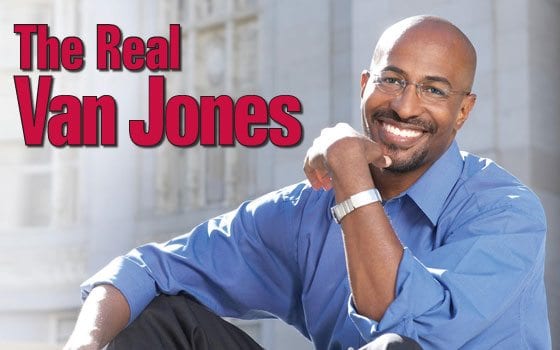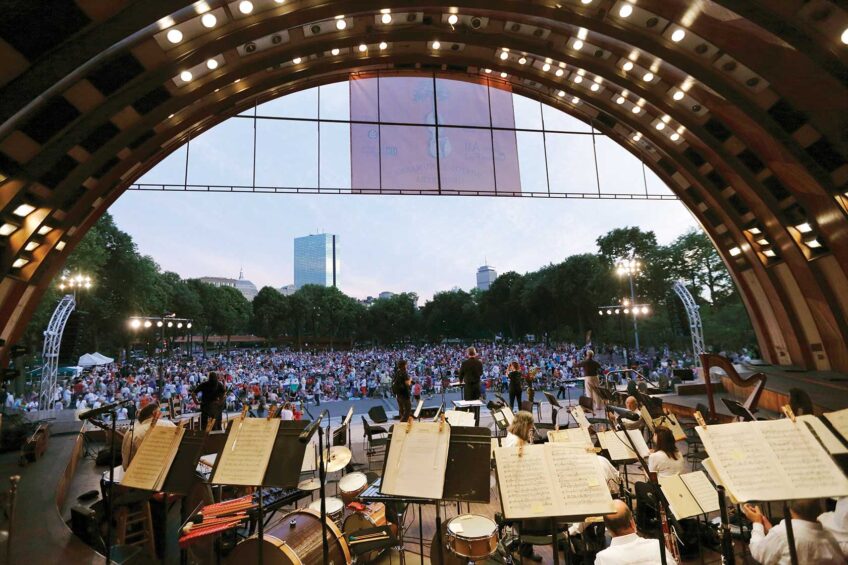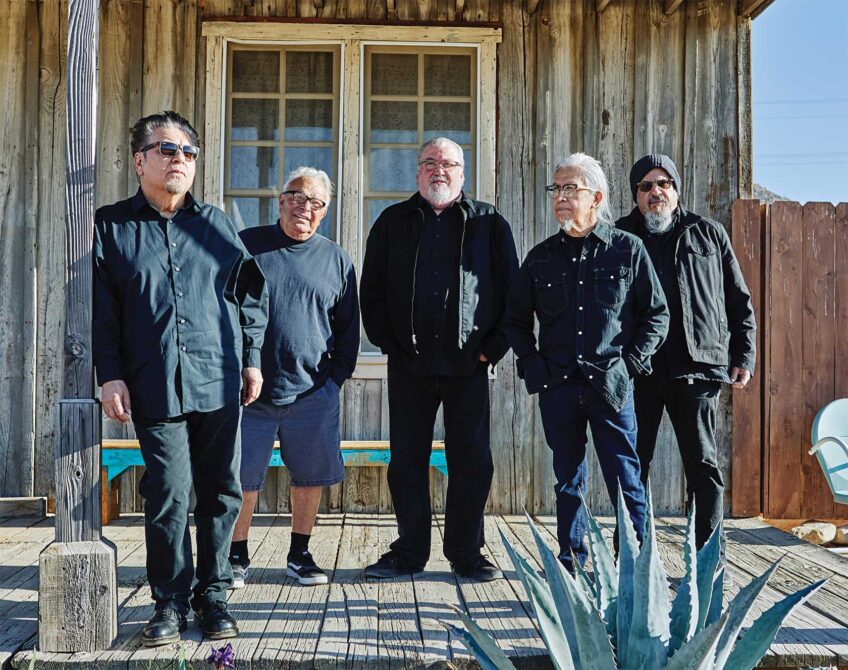The former Obama Green Czar opines on the state of ‘Carbon Nation’

The former Obama Green Czar opines on the state of ‘Carbon Nation’
Anthony “Van” Jones and his twin sister, Angela, were born on Sept. 20, 1968 in Jackson, Tenn. to Loretta and the late Willie Jones, a teacher and principal, respectively. Jones graduated from the University of Tennessee with a bachelor’s degree in communications and political science, before earning a Juris Doctor at Yale Law School.
A clean energy pioneer and author of the eco-employment best-seller “The Green-Collar Economy,” he was invited by the Obama administration to serve as “Green Czar.” But Jones decided to resign from the post in the wake of a relentless, right-wing smear campaign which accused him of everything from being a Communist to signing a petition suggesting that the Bush administration had knowingly permitted the terrorist attacks on 9/11 to transpire.
Jones is now teaching at Princeton University, where he holds a joint appointment at both the center for African American Studies and the Woodrow Wilson School of Public and International Affairs in the Program for Science, Technology and Environmental Policy. He is also serving as a Senior Fellow at the Center for American Progress and as a senior policy advisor at Green for All.
Here, he talks about all of the above, and about his appearance in “Carbon Nation,” a cautionary documentary about the consequences of climate change. The film opens in theaters in New York City on Feb. 11, and will open elsewhere around the country later in the month and in March before becoming available on DVD in April.
What interested you in appearing in “Carbon Nation?”
Back in 2007, I met this white guy [director Peter Byck] with a lot of hair and a video camera, at a conference that I happened to be attending for the launch of an organization called Blacks in Green. I had never heard of him and Peter had never heard of me. We just started talking; he liked what I had to say, so he asked me if I’d be willing to be in this documentary he was doing about carbon pollution. I said, “Sure!” It was kind of a no-brainer.
Before you got interested in environmental issues, you started the Bay Area Police Watch, a San Francisco-based organization with an emergency hotline and a lawyer referral service for victims of police abuse. What inspired that?
I saw in the Nineties that we were increasing police power with get tough policies and three strikes laws, but without additional oversights. I had this radical idea that the police should obey the law. My view was that any human system without adequate checks and balances will tend toward corruption and abuse. That’s why you have meat inspectors. Not because you hate butchers, but because of an understanding of human nature. Similarly, I felt like you gotta have some oversight of law enforcement. And though the rampant racial injustices throughout the criminal justice system were offensive to me and to millions of other people, I’ve never drawn a tight circle around the black community to define the limits of my moral concern. But that narrative tends to get imposed on you, if you’re an African American activist. But in the aftermath of Hurricane Katrina, we did create Color of Change, an organization which focused on African Americans in particular, because we felt that there was a big gap there in terms of online advocacy which had left the black community particularly vulnerable.
Where are the jobs in the green economy? In which industries? Who are some of the larger employers? What are some of the entry-level jobs?
There are 80,000 jobs in the wind energy industry right now. And you can quadruple that number, if you have the right policy in place to promote clean energy. There are about 46,000 jobs supported by the solar industry right now. That’s fewer than it should be, too. And you have a whole other set of jobs in energy-efficiency in buildings and in creating the “Smart Grid,” as we call it. There’s also manufacturing smart batteries and bio-fuels, Those are just the energy jobs. Then we have the water, food and other industries which are also experiencing some redirection. As far as employers who are hiring, Vestas is a big wind company, and Solyndra is a solar power company. But some of these companies are starting to struggle in the absence of America’s committing to a cleaner future by way of Congressional action. The prospects of green economic opportunity is going to be determined to a great extent by politicians arriving at some sort of bi-partisan resolution.
How do you respond to those who say that green jobs are, at best, limited in their potential impact in terms of the number of and quality of jobs created and, at worst, “make-work” jobs that form just one part of the grand socialist apparatus designed to crush the private sector and, implicitly, all that is patriotic and holy?
[Laughs] That’s funny. I used to be called the “Green Jack Kemp” because of my promotion of entrepreneurial and work-based solutions for poor people. As champions of green jobs, we’re asking questions that progressives should, like “How are we going to avoid baking the planet?” and “How are we going to create jobs for ordinary Americans?” Meanwhile, we’re offering solutions that conservatives should like. I’m not calling for more welfare; I’m calling for more work. I’m not asking for more entitlement programs; I’m asking for more enterprise. I’m not calling for redistributing wealth; I’m calling for reinvigorating our stuck energy sector, so some new entrepreneurs can create some new wealth.
Right now, when you go and hit the light switch in your house, you’re participating in a state-protected monopoly. You’re being forced to accept dirty power from a single producer. I’m the guy that’s trying to break up that monopoly to introduce free enterprise and competition to the energy sector. I’m saying you should have the right not only to be an energy consumer but an energy producer.
Follow the money to understand why my message keeps getting drowned out. Big oil and big coal are terrified by the green jobs message. We’re just trying to end illegitimate government support for a single technology, which is un-American. We should be leading the world in the next generation of technological innovation. But we can’t unleash private capital because of what the government is doing to stifle innovation and to choke competition. The government built the grid to favor one industry over others. But I don’t hear any conservatives screaming about that. Folks don’t understand that the elite economic interests that are holding them down are also feeding them a bunch of lies.
How would you assess the state of the union?
I think there’s going to be a tug of war in this country over who are the real patriots because at a time of national crisis, economic collapse and calamity, ecological peril and social dislocation, the American people deserve to be a partner to the American government. Nobody wants a nanny state, where the government is stamping out initiative and telling us what to do, but the idea that the only alternative to that is to throw the American people overboard into a global economy with no protections to cushion us from some of these blows is absurd on its face. That’s why I think there’s been a concerted effort to distort my message. When you hear me speak beyond the sound bites taken out of context, I think I make a lot of sense to people, even those in red states like the one where I grew up.
What do you think is the one environmental thing this country has to get right in the next ten years?
Carbon. We’re going to bake this planet, and be a curse to all species, including our own, if we don’t find an alternative to carbon-based fuel. That’s the No. 1 problem.
I don’t hear many young people talking about green jobs. How do you feel you can make green jobs “sexy” to appeal to young, poor unemployed or underemployed youth?
The problem isn’t that the green jobs aren’t sexy enough. It’s that they’re not plentiful enough. A young person looking for a job isn’t looking just for a sexy job; they’re looking for any job. And, unfortunately, we have a 50 percent unemployment rate among our urban youth of color. It’s not about making green jobs more attractive. It’s about making them more available. And that requires Congress passing legislation that will give a real break to the people who want to introduce new technologies to the American marketplace.
Do you have any resentment about being made a sacrificial lamb in the Fox News wars against president Obama?
There’s no higher honor, in my estimation, than being asked to serve in the White House. I learned more in those six months than in the prior six years. I don’t think that anybody who has had the privilege to serve the country at that level should walk out and behave like a crybaby. And I plan to continue to serve the country in other capacities.
I would like to know if, looking back, you have any regrets about resigning your position at the White House; and whether the president fought at all for you to stay.
No, I don’t have any regrets about resigning. Once it became clear to me that the right-wing was not going to let me serve in the way I wanted to serve, I resigned. I didn’t ask President Obama to defend me. His focusing on getting health care passed so every baby in the nation could see a doctor was far more important than his having to explain every aspect of my colorful past.
Larry Greenberg says: I sometimes hear corporate polluting compared to littering. Is there a better simile, one that could inspire real action?
To me, that analogy is inspiring. Ordinary Americans can’t pollute for free. You can’t dump your trash on the sidewalk or throw all your refuse into your neighbor’s yard. I don’t understand why corporate polluters should be allowed to dump megatons of carbon, the most dangerous pollution in the history of the world, into our thin shell of an atmosphere, and not pay a penny to do it. So, from my point of view, it is a very motivating framework.
Who or what has been your greatest source of inspiration and encouragement in life?
That’s a good question. I have many sources of inspiration. I’d have to point to Dr. Martin Luther King, first and foremost. But my parents were good, hardworking folks who kept us in the church and the public schools, and out of trouble, for the most part. Along the way, I’ve had a chance to meet some of my civil rights heroes and, more recently, members of the young generation around Obama, people in their teens and twenties who were determined to make history and who were too idealistic to think that what they were trying to do might be impossible. They proved that visionary pragmatism can win over the majority. That comes from a particular place in your heart that generation Y is offering America. They just can’t afford to be naïve now, in terms of the ferocity of the opposition. They give me a lot of inspiration. And so does being a father, which has really made me much more committed to trying to solve these problems, and not just to protesting them.
What do you see as the role of “The Church” in this new green economy? How should the black church, which is basically the largest people base in the African American community, begin to forge a foothold in the green market?
First of all, fighting for and defending the values from the pulpit is critical. You can’t love the Creator, and disrespect the creation. We have to make that very clear as people of faith. So, we’ve have to heed our Biblical obligation to be good stewards of the Earth after leaving the Garden of Eden. And secondly, it’s time to start bringing the congregations down to City Hall and to ask the mayors, the city councils and the school boards, “What’s the plan? What’s the local government going to do for us?” There are some cities that are doing good stuff, but there aren’t enough of them. If you don’t fight for what you want, then you deserve what you get. And in politics, if you don’t ask, you don’t get at all. In addition, black folks need to attend green conferences, too. We just self-segregate and don’t go. They might even waive your fee if you apply on a diversity basis, because they’d be so shocked to see somebody from a different background wanting to be a part of the green movement.
Are you ever afraid?
All humans have fear, and those of us who are fortunate have faith.
Are you happy?
I’m happier than I was in 2009.
When was the last time you had a good laugh?
Yesterday, dealing with my two-year-old son, who is certifiably insane.
What is your guiltiest pleasure?
Pop-Tarts.
When you look in the mirror, what do you see?
Indescribable gorgeousness!
What is your earliest childhood memory?
Shirley Chisholm speaking at the 1972 Democratic National Convention. I was almost four.
Is there any question no one ever asks you, that you wish someone would?
Yes, “Did you sign that petition implicating the Bush administration in 9/11?” Because I never signed it, and I hate being vilified for a controversial idea I never espoused. The reason they love to beat on that drum is because it’s so discrediting. In a two-year period, all my dreams came true: the birth of a son … publishing a best-selling book … launching a successful organization … joining the Obama administration … And then all my nightmares came true.
What advice do you have for anyone who wants to follow in your footsteps?
Trust your intuition and be resilient. If you have real breakout ideas, even your friends will laugh at you secretly until you can prove their viability. I’ve never launched any initiative or campaign that people thought was a slam dunk.
Do you attribute your success to yourself or to God?
To the God in myself is probably the most honest answer. I think everybody has a divine destiny. There’s the God within and the God without, and you have to attend to the alignment of the two of them.
How do you want to be remembered? What do you want your legacy to be, and where are you in relation to that at this point in your life?
I want to be remembered as one of the great innovators among social justice advocates of the 21st century. I’m only 42, and I’ve got a lot more tricks up my sleeve.






